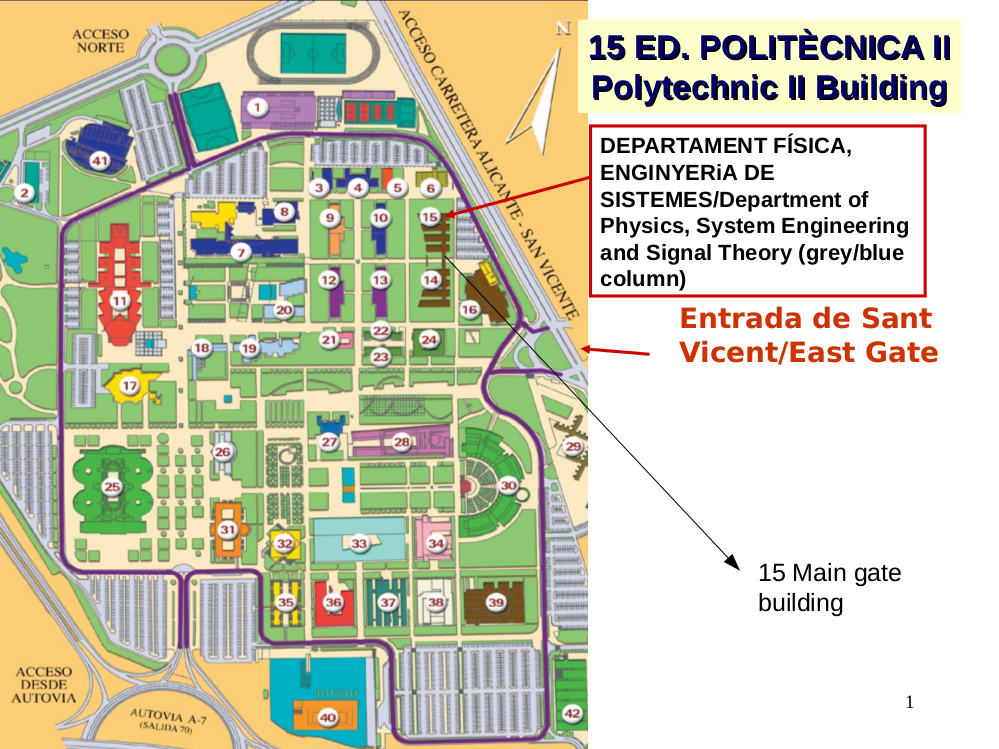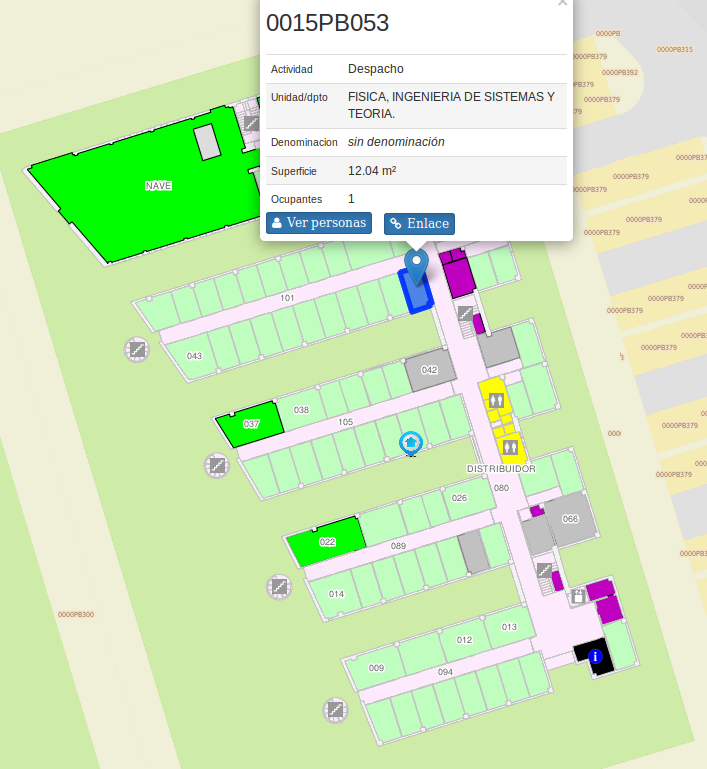Course Meeting Times
Lectures: 3 sessions/week, 2 hours/session (theory) and 1 hour/session (problem)
Laboratory: 10 sessions, 1.5 hours/session
General Information
Fundamentals of Physics in Engineering is a basic subject in the degree in Civil Engineering. The engineering graduate should be able to use the relevant laws of kinematics and dynamics to solve problems of rotational and lateral movement, explain harmonic oscillations, damped oscillations and forced oscillations and treat such oscillations mathematically, describes mathematically and explain the concept of wave lore, explain the first and second law of thermodynamics and solve problems applying these laws, and explain the principles of electric and magnetic fields and apply the basic laws of electric circuits. What we do is show problematic situations (open problems relevant to the civil engineering student, both theoretical and practical situations) where we have to think about possible solutions doing research, and not necessarily requiring a numerical answer. This methodology facilitates the autonomy and responsibility of the students, the interactivity teacher-student and student-student, and shows the connection between physics and other areas of knowledge.
The material in this course is tightly interconnected, so it is very difficult to understand the contents of Chapter N if you are not comfortable with the ideas in Chapters 1 . . . N-1. For that reason, we want to do everything that we can to encourage you to stay on top of the subject, avoiding any gaps in your understanding.
Lectures
We expect you to attend the lectures. The lectures will explain the concepts that you are expected to understand, and in addition there will be live demonstrations that are important to your understanding of the material. We also expect you to read the material we have prepared before the class.
Tutoring hours
Graduate student tutors will be available throughout the semester, and you are strongly encouraged to seek their help. Tutoring sessions will be on Mondays from 12:30 to 16:30 hours. Initially they will be up to students, but we may switch to a sign-up system by the campus virtual if there is a problem with overcrowded sessions.
Raymond A. Serway and John W. Jewett Jr. Physics for scientists and engineers with modern physics (8th edition). Brooks/Cole CENGAGE Learning (Belmont, USA, 2010)
Paul A. Tipler and Gene Mosca. Physics for scientists and engineers (6th edition). W. H. Freeman and Company (New York, England, 2008)
Hans C. Ohanian and John T. Markert. Physics for engineers and scientists (3rd edition). W. W. Norton and Company (New York, USA, 2007)
When the material in the Study Guide and your notes are too concise for your taste, you can turn to the textbook, which provides more detailed derivations and explanations of the results and formulas. It also has more worked examples and problems, problem-solving hints, etc. Homework problems could be assigned from the textbook.
Problem Sets
Problem sets will be assigned about once a month. The exact schedule of hand-out dates and due dates is included on the Course Calendar, attached to this link. Normally, written homework will be delivered by hand in the classroom and it has to be finished in three or four weeks. All the homework scores will be included from the homework grade.
We believe that working out the problems on the homework is absolutely essential to learning the material of this course. Trying to learn physics without doing problems is like trying to learn how to ride a bicycle by reading a book. We strongly encourage students to get together in groups to discuss the homework, but of course the mere copying of solutions written by your friends will not help you learn physics. Solutions to each problem set will be made available immediately after they are due.
Examinations
Quizzes
On two selected lecture periods (week 9 and week 15), 50-minutes quizzes will be given in a lecture session. The dates of the quizzes are shown on the course calendar.
Problem exams
Two lecture periods during the semester (week 9 and week 15) will be used for problem exams. Each exam will focus on all the material since the previous exam, and will include at least one problem that is at most a slight modification of a previously assigned homework problem.
Final Examination
The 3-hour final exam, which will cover the material from the entire course, will be held few days/weeks after the last lecture. The date is shown on the course calendar.
Grading
Quizzes = 15%
Problem exams = 15%
Laboratory reports = 20%
Final Exam = 50%
Academic Behaviour and Honesty
During quizzes and exams, exchange of information with others is unacceptable. So is the use of notes or other materials, unless explicitly authorized. You will be allowed to use scientific calculators. Anyone suspected of violating these guidelines will be charged with academic dishonesty and subject to UA’s disciplinary procedures. However, you are strongly encouraged to get together in groups to discuss the problem sets and the material presented in the course.


